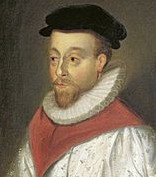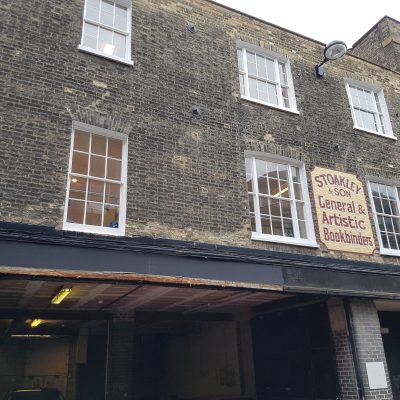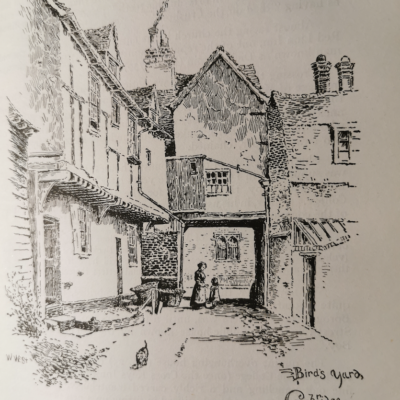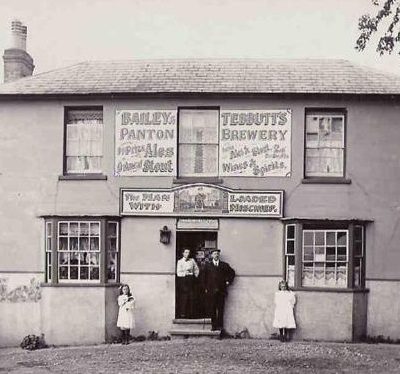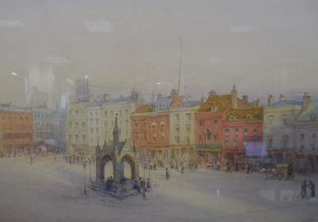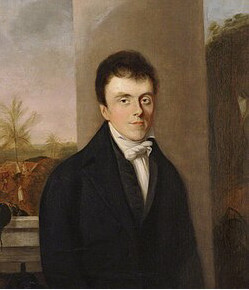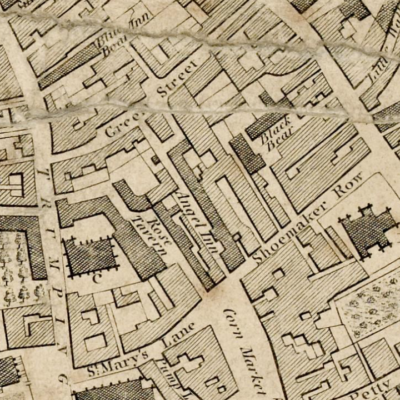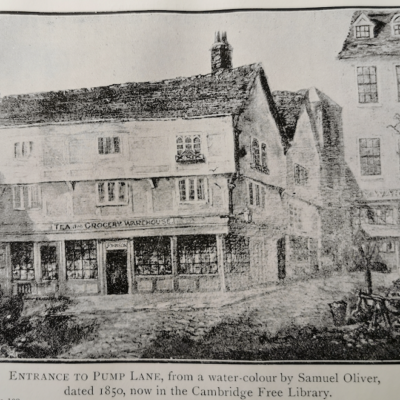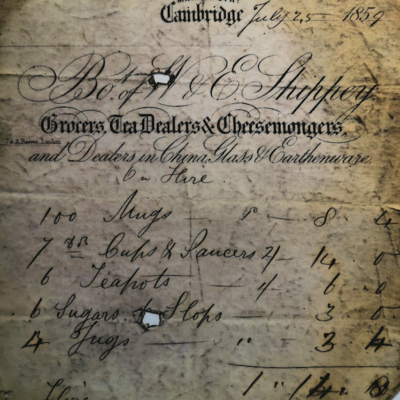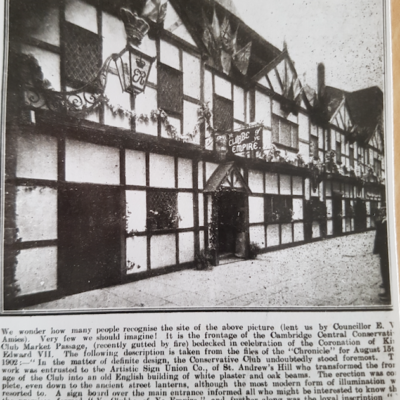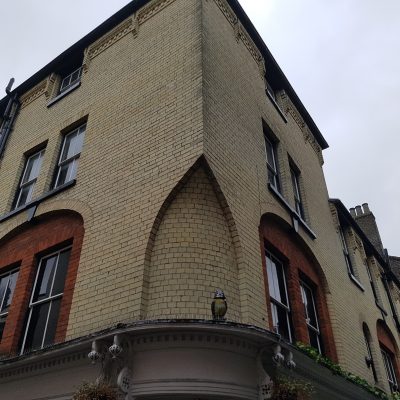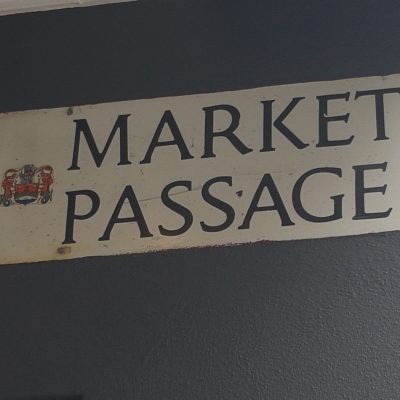Search by topic
- archaeology
- Building of Local Interest
- chapel
- charity
- church
- crime
- dressmaker
- fire
- Great Eastern Railway
- Listed building
- Mapping Relief
- medieval
- oral history
- poverty
- Public House
- Religious House
- Roman
- scholar
- school
- Then and Now
- tudor
- women
- work
- world war one
- world war two
Search by text
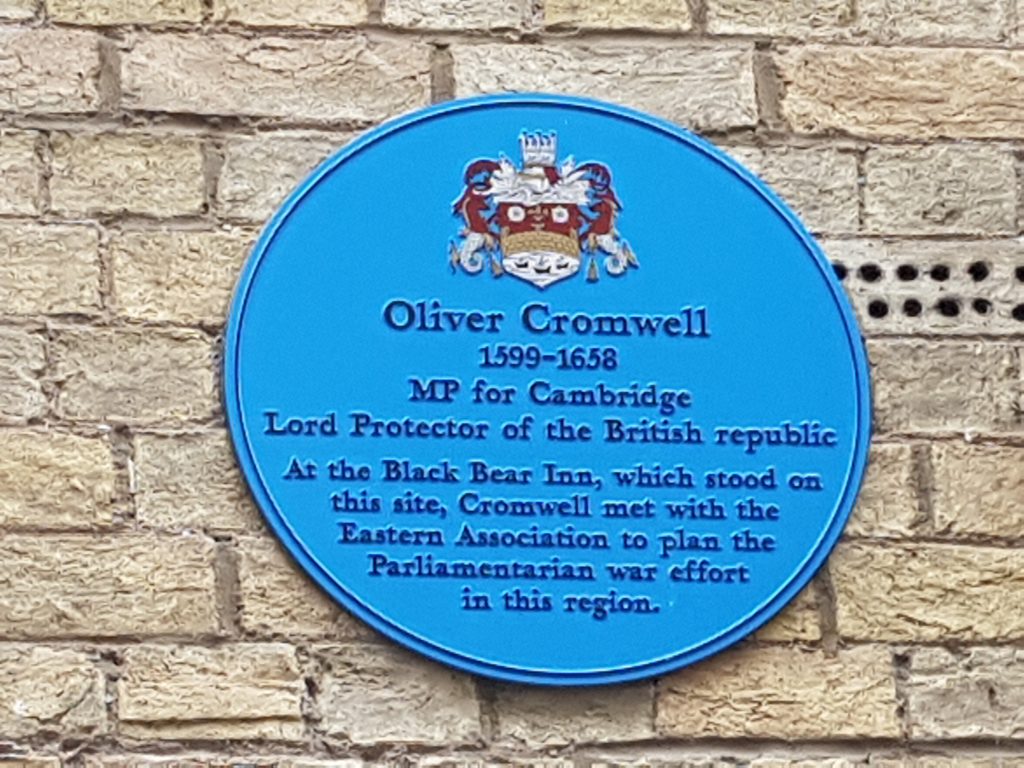
Black Bear Inn
History of the Black Bear Inn
Market Passage was formed in 1848 from the yard of the Black Bear Inn.
According to Nelson (Early Cambridge Drama), no [drama] performances apart from two of 1557 and certainly no performances before royalty are capable of being documented for the Falcon, and no performances at all before modern times for the only surviving Cambridge galleries inn, the Eagle. The two performances at the Falcon are nevertheless twice as many as can be documented for three other Cambridge inns: the Saracen’s Head (3/1/1557), … the Elephant (27.2.1596); and the Bear (28.5.1600). We know, however that professional players visited Cambridge with some regularity into the 1590s, though their place of performance is scarcely ever recorded.
1600 keeper was Mary Gibbons, widow of William, head of Cambridge waits from 1567 to 1576, and again from 1590 to his death in 1595. Mary seems to have retained legal control of the waits until her death in 1603. (She was the mother of Orlando Gibbons, who may well have grown up at the Bear, and probably lived there during his student days if he did not live within the walls of King’s College; he would have been about 17 in 1600).
1711 Howland Nutting, innkeeper of the Black Bear, inherits the ownership of booths at Sturbridge Fair from his aunt, Elizabeth Howland who lived in Streatham, Surrey. Elizabeth’s husband, Walter, who died in 1692 had managed these for her. Records show that in 1683 he held booths in Sturbridge Fair (in the right of his wife Elizabeth nee Nutting), but he chose to live in Surrey. For this privilege he had to pay Cambridge Corporation £6 to live away from Cambridge and keep his booths.
Howard Nutting pays £10 to be admitted as a freeman in Cambridge in order to possess the booths. he has a surveyor measure the extent of all the booths when they are set up in September and these measurements are recorded in a notebook. (Bowtell Collection, Downing College)
1720 Howland’s son Thomas Nutting claims the freedom (as eldest son of a freeman). He is in business as a coal and corn merchant.
(p.13 ‘Cambridge and Stourbridge Fair’, Honour Ridout)
Madame Tussaud showed her wax figures in the Assembly Room of the Black Bear prior to 1848. (See Enid Porter, Cambridgeshire Customs and Folklore p250.)
1839 site of printing of Radical newspaper, The Cambridge Independent Press.
1848 inn was demolished
See Enid Porter: Old Cambridge Inns
Contribute
Do you have any information about the people or places in this article? If so, then please let us know using the Contact page or by emailing capturingcambridge@
Licence
This work is licensed under CC BY-NC-SA 4.0





